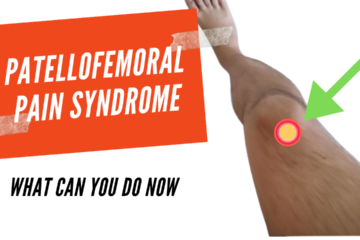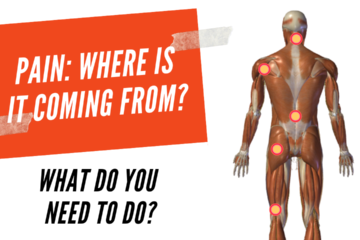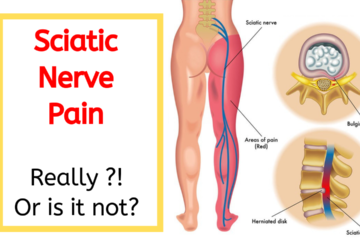Hey there in this video I want to talk about knee pain without surgery. I’ve been asked quite a number of times regarding this matter and I thought maybe I should just put up a video to just if you happen to watch
this then at least you can yourself educated because not all the pain requires surgery.
I mean this topic has been around for the longest time everybody will say if there is some pain there is some degeneration you need to get it fixed you need to get everything in there brand new so that you won’t feel the pain anymore.
The thing about this is we don’t even have to get there in the first place. The first thing is how did you actually get the knee pain? So let me just break this down so you have a better understanding I’ve put up a video earlier on to show you that actually are all structures around the knee. It doesn’t mean that you have knee pain you have to have surgery done because the structure is already one of the reasons why you have knee pain.
So then comes how did you actually get the knee pain? You may have some accident. It could be you know, somebody bump into you and then you try to break the force, you try to balance, and then you felt something. Or very commonly people in sports, they were doing some jumps, they land, and then they felt something could also be sudden acceleration, where again, usually in sports athletes, when they try to change direction very quickly they feel something.
And then there is one, that is you don’t know what happened, once in a while you feel pain you just don’t care about it, and then over time, you start to feel even more pain and this is the one that everybody talks about which is also like chronic pain degeneration, wearing out of ‘gel’ and this kind of things.
Something that nobody talks about and the degeneration that is happening is the muscle. So they talk about could be meniscus, could be cartilage could be the bone all this can be scanned and they can show you on the imaging. Sometimes you say, I have knee pain on my right and you go for a scan could be x-ray they can’t find anything but you still have the pain. Then let’s go for more scans then now we go for an MRI. On the MRIs, you’ve actually found
something and then very commonly you’ll be asked to go for surgery and if you insist not to then there is some other kind of treatments that could be some injection.
Most of it comes in the form of injection, you need to find out what is injected. They call PTP some plasma treatment (Platelet-rich plasma treatment) so what they want to do is they want to make the cell regenerate in there. The other one is steroid which is not very common now.
Depending on the condition, and those are the more common treatment that you get. The thing about muscle, back to muscle again, is that there’s no test there’s nothing to quantify that to say that actually there is something wrong with the muscle and the only thing to test this out usually, my question to people who come to me is whether is it on both of the knees. If it’s only one side so then my question would be you were told that it is degeneration, and so how come both knees are of the same age (because you can’t be born one year later right with one leg and then the other) and then you have a degeneration on one knee but not the other knee? That is one of the questions.
Something that you may want to also ask yourself, the other question that I asked is, in what action, in what movement, or how do you actually replicate the pain because this is very important. If you know how you can replicate the pain, again and again, this tells me something. This tells me that this movement can cause pain and when movements get involve you cannot say that the muscles are not involved. Something that I also asked, in addition, is also when there’s no movement when you are seated down and not doing anything, do you feel pain? Most of the time it’s a no.
So then comes my question if it is a structural problem (so think about a brick or something that you know has to chip off or wear off), isn’t it supposed to give you the pain while you’re not doing anything? The thing is they’re not feeling pain when they are not doing anything. So how can it be that when the structure is worn off, is degenerated, but it’s not giving you pain when you’re just not doing anything?
There are a few, you know these are common questions that you have to go through, you have to think through as well because you most likely don’t know and you happen to see these then at least you now know, and you have to go think about it because when movement gets involved and you try to eliminate and you try to do or you question yourself the question that I ask earlier on, most of the time it’s going to be muscle and I’ve seen so many cases where when we do rehabilitation the pain goes off.
The degeneration comes from the muscle because after the age of 30 year old, everybody’s muscle will start to degenerate or atrophy and that’s why when you look at athletes, no matter who you look at, they start to get slower
every time.
When you know passed the age of 30 year old especially with sports where you where it’s very physically demanding, where they need to be running, sprinting, jumping you will see their performance dropping because although they have been training every day, the muscles (this is human biology there’s no way that you can change this) you can slow it down but you just gonna get slower and that’s why most of them, they will retire at age 34
35, or move on to other sports or move on to doing other things in life because there’s no way to compete anymore once they pass that the stage.
So muscle over here it does get degenerate and it again then depending on how you are moving previously, or running for some people they may be getting into trouble. Getting one side of the body the leg to be doing more work and the other side, not so then this one side has been overloaded in the sense and it just gets into trouble over time. It doesn’t mean that knee pain requires surgery.
I really hope that this video helps please do share this, please do let you know somebody you know is having this problem because surgery is usually not the very first recommendation for everybody. There are risks involved, so something that you want to think through as well.
If you know somebody let them know, share this video with them.


